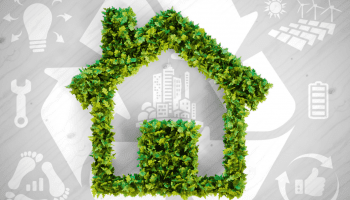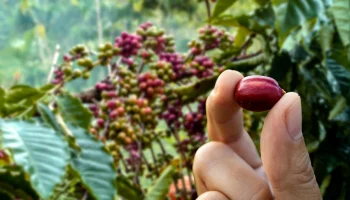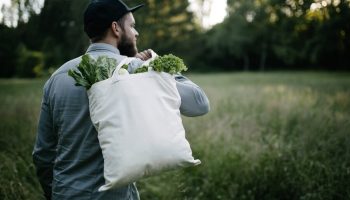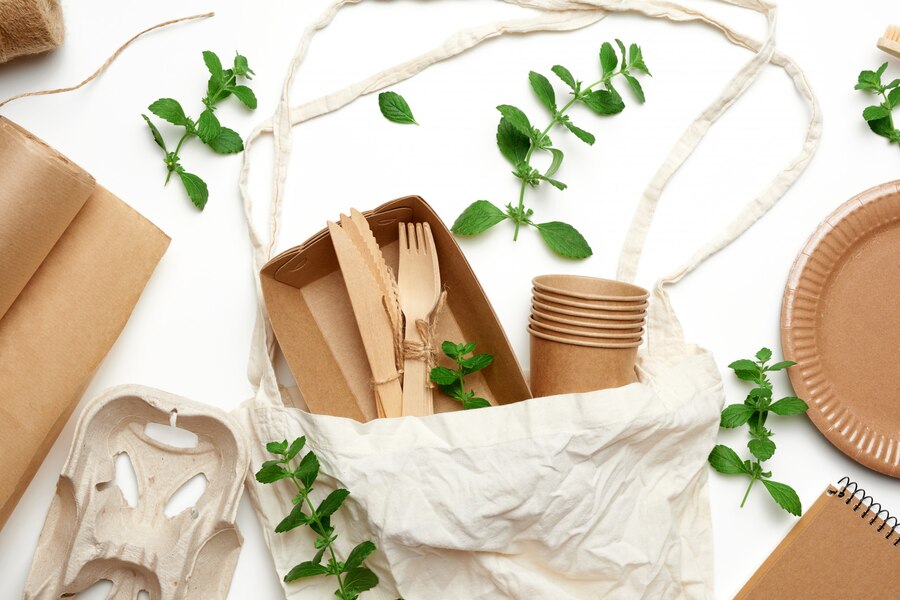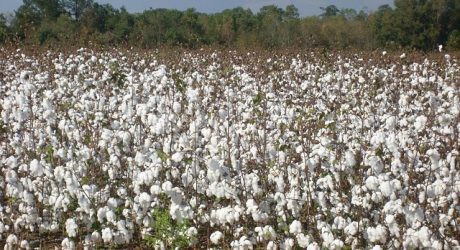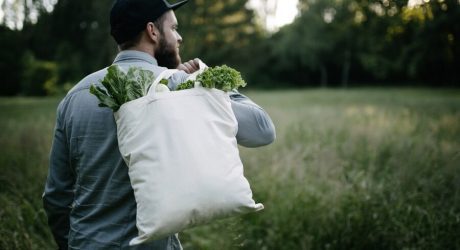Ever stopped to think about the amount of plastic waste generated by our daily food packaging habits? The convenience of plastic wrap is undeniable, but at what cost to our planet? What if there were alternative, sustainable food wrapping methods?
Not only does it keep your food fresh but it also contributes to a healthier environment?
Join us on a journey to discover eco-friendly and practical ways to reduce your plastic use through sustainable food wrapping. Ready to make a positive change? Let’s unwrap the secrets of eco-conscious food storage!
Beeswax Wraps: Nature’s Gift
Replace plastic wrap with beeswax wraps. These are a sustainable alternative made from cotton infused with beeswax, jojoba oil, and tree resin. These wraps are pliable, washable, and reusable, offering a natural way to keep your food fresh.
Cloth Covers: Stylish And Reusable
Embrace cloth covers as a stylish alternative to plastic. Choose reusable cloth covers with vibrant patterns to cover bowls, plates, and leftovers. They’re not only eco-friendly packaging but also add a touch of charm to your kitchen.
Silicone Lids: Stretchable And Durable

Silicone lids are a versatile and durable option for covering containers of various shapes and sizes. They are heat-resistant, dishwasher-safe, and can be reused countless times, making them an excellent eco-friendly choice.
Mason Jars: Another Sustainable Food Wrapping Solutions
Opt for the classic charm of mason jars for food storage. These glass jars are a timeless option for preserving liquids, snacks, and even salads. They are reusable, recyclable, and eliminate the need for disposable plastic containers.
Compostable Plates And Wraps: Nature’s Recycling
Explore the world of compostable materials for plates and wraps. Made from plant-based fibers, these options break down naturally, reducing your environmental impact. Enjoy your meal guilt-free, knowing your food wrapping is contributing to a healthier planet with green living practices.
Parchment Paper: Simple And Effective

Parchment paper is a classic and easily accessible alternative to plastic wrap. It is compostable and can be used for a variety of food wrapping purposes. Plus, it’s an excellent option for baking, ensuring your treats don’t stick to the pan.
Edible Wraps: Embrace Nature’s Bounty
Explore sustainable food wrapping options like banana leaves, grape leaves, or even cabbage leaves. These natural materials not only add a unique flavor to your food but also eliminate the need for plastic. It’s a win-win for your taste buds and the environment.
Bamboo Wraps: Sustainable Elegance
Choose bamboo wraps for an elegant and sustainable solution. Bamboo has natural antibacterial properties, making it an excellent material for food wrapping. These wraps are not only eco-friendly but also add a touch of sophistication to your kitchen.
Reusable Silicone Storage Bags: Seal And Repeat
Invest in reusable silicone storage bags for a convenient and eco-friendly alternative to disposable plastic bags. These bags are airtight, easy to clean, and can be used for a wide range of food items, from snacks to sandwiches.
Wax Paper: Time-Tested Tradition

Rediscover the reliability of wax paper for food wrapping. It’s an old-school, biodegradable option that’s making a comeback. Use it to wrap sandwiches, cheese, or cover leftovers, knowing you’re making a sustainable choice.
Hemp Wraps: Durable And Earth-Friendly
Consider hemp wraps for a durable and earth-friendly alternative. Hemp is a fast-growing, low-impact crop that requires minimal pesticides. Hemp wraps are not only eco-conscious but also sturdy enough to protect your food.
Linen Bags: Eco-Chic Storage
Elevate your food storage game with linen bags. These reusable bags are perfect for storing bread, produce, or snacks. The breathable fabric keeps food fresh, and the bags can be tossed in the wash for easy cleaning.
Aluminum Foil: Recyclable And Sustainable Food Wrapping
When it comes to wrapping for baking or grilling, aluminum foil is a recyclable option. Ensure you recycle it appropriately, and consider reusing foil when possible. It’s a versatile choice that can be part of your eco-conscious kitchen routine.
Glass Containers: A Solid Investment
Opt for glass containers for a durable and sustainable food storage solution. Glass is infinitely recyclable and doesn’t leach harmful chemicals into your food. These containers are perfect for storing leftovers, lunches, and snacks.
Vegetable Packaging: Nature’s Own

Take a cue from nature and use vegetable packaging for sustainable food storage. Hollowed-out bell peppers, scooped-out pumpkins, and zucchini boats can serve as natural containers, adding a unique twist to your meals while reducing waste.
Stainless Steel Containers: Robust And Long-Lasting
Consider stainless steel containers for a long-lasting and eco-friendly alternative. These containers are sturdy, easy to clean, as well as corrosion-resistant. Thereby making them an excellent investment that promotes sustainability.
Cotton Produce Bags: Lightweight And Reusable
Switch to cotton produce bags for your fruits and vegetables. These lightweight and reusable bags are a simple yet effective way to reduce plastic use in your kitchen. They are washable and can be easily folded for convenient storage.
Ceramic Containers: Durable And Stylish
Choose ceramic containers for a durable and stylish option for food storage. These containers are microwave-safe, making them perfect for reheating leftovers. They also add a touch of elegance to your kitchen counter or dining table.
How To Get Your Hands on These Amazing Wrapping Solutions?
There are many ways to get food wrap that is good for the environment. You can buy them at stores that are good for the environment or online from stores that sell sustainable goods.
There’s also a possibility to find them at craft fairs and farmers’ markets near you, where people sell homemade beeswax wraps, cloth covers, and other eco-friendly options. You can also make your own wraps and covers with things like beeswax, cotton fabric, and jojoba oil, which are easy to find.
Regardless of the method you select, you should make an effort to include eco-friendly ways of wrapping food in your daily life. Making little changes like these can help protect our planet and cut down on plastic waste.
Read Also: Casting Solutions For A Greener Tomorrow: 10 ustainable Manufacturing Practices
Transform Your Food Wrapping Habits For A Greener Tomorrow
By embracing sustainable food wrapping methods, you’re not just reducing your plastic use; you’re making a positive impact on the environment. Whether it’s beeswax wraps, silicone lids, or hemp wraps, the options are diverse, and the benefits are far-reaching.
Your journey towards eco-conscious food wrapping isn’t just a small step. It’s a collective effort to create a greener, cleaner future for generations to come.
Did you like this guide? Great! Browse our website for more sustainable food storage ideas!
Additionals:











